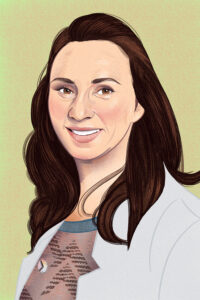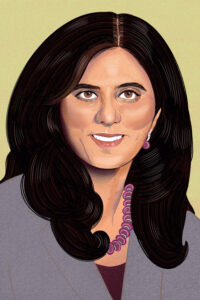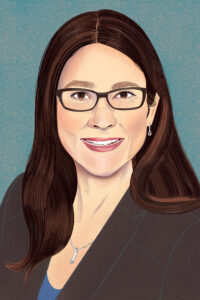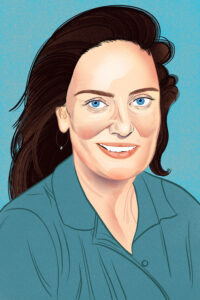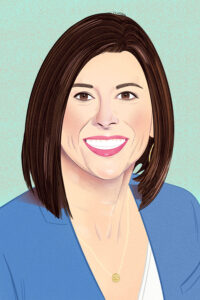Sherry Hunyadi is the Chief Security Architect for Chevron, a role she assumed in May 2021. Sherry leads Chevron’s Cybersecurity Engineering and Innovation team, responsible for the strategic direction and technical execution of security-by-design practices across information technology (IT) and operational technology (OT).… She is a member of Chevron’s CISO Leadership Team, which is responsible for overall cybersecurity efforts to secure and protect Chevron’s information and assets while ensuring cyber resiliency and data privacy.
Prior to joining Chevron, Sherry served in several IT leadership roles. Most notably, she received a Houston CIO ORBIE award nomination for her work as VP, CIO for Layne Christensen Company before and during their acquisition by Granite Construction. With over 20 years of experience in application development, system architecture, infrastructure, integration and data analytics across a wide range of industries, Sherry brings a passion for stakeholder partnerships that deliver on the promise of true transformation through technology.
Sherry received her Bachelor of Science in Computer Science from Texas A&M University in College Station, Texas. She resides in Spring, Texas, with her husband, an active Warrant Officer in the Texas Army National Guard. Show more

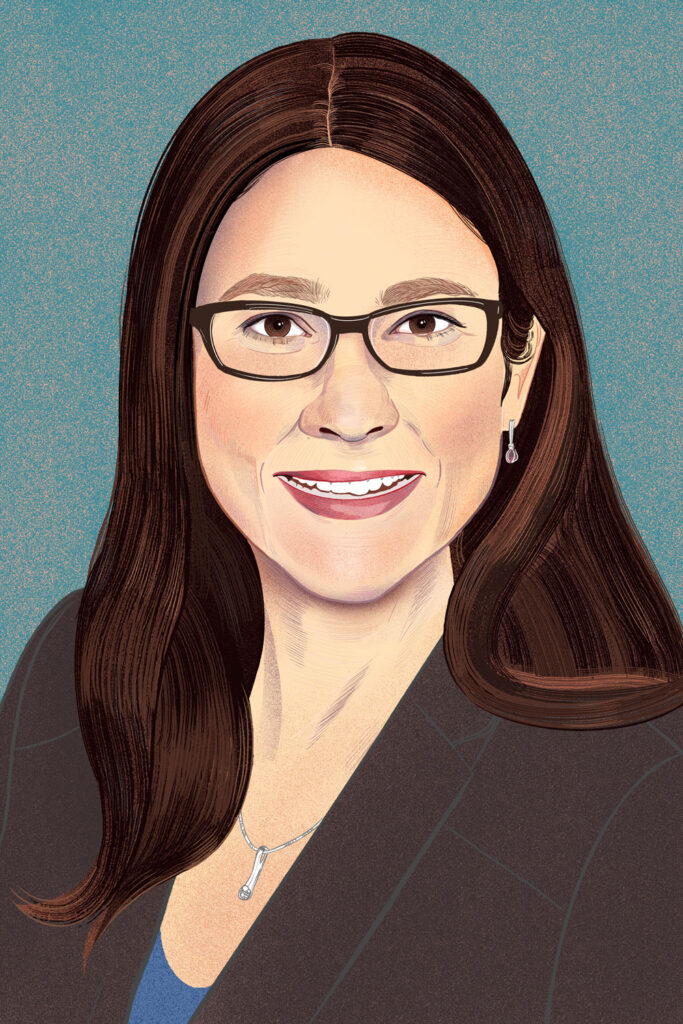
LEADERS IN CYBERSECURITY
Sherry Hunyadi
Chief Security Architect, Chevron
What does a typical day of work look like for you?
My role is very broad, covering existing and emerging security design standards and technologies for OT and IT across the enterprise. On a typical day, I collaborate with partners across the enterprise to understand the evolving threat landscape, changes in regulation, business strategies and technology to ensure we maintain and continue to improve our cybersecurity posture.
What aspects of your career journey have taken you by surprise?
This latest cybersecurity-focused role was a bit of a surprise for me. Before this position, I led small and midsize industrial companies’ IT organizations (VP/CIO). I was responsible for balancing cybersecurity risk with operational needs on an ever-shrinking budget. I applied for this role after a close friend insisted I was just what Chevron needed to bridge IT, OT, and Cyber and Ops.
Tell us about the cyber project you're most proud of working on in your career.
I’m most proud of the OT cybersecurity program I developed and launched with my team last year to meet our CIO’s vision of world-class cybersecurity for our most critical operating environments.
How has public perception of cybersecurity changed over the course of your career, and how do you predict in the future?
When I was a young SCADA programmer (a long time ago), security meant hashing passwords and blocking SQL injection attacks in input screens. The evolution of technology to the web and then to the cloud is miles away from the world where I started my career, and the increasing threat landscape is making it so that cybersecurity can no longer be an afterthought. It has to be baked into every design.
Tell us about your first job (can be anything!) and one lesson you might have learned from it.
My first job was a summer camp counselor for four and five-year-olds. I learned what it meant to be physically and emotionally exhausted every day, but absolutely loved the work.
What’s one piece of advice you’d give your younger self about getting started in cyber?
I would reassure my younger self that I knew more than I thought I did on the subject and that the field is so broad and ever-changing that no one can be an expert. There is a lot of room for diverse perspectives and creative problem-solving skills.
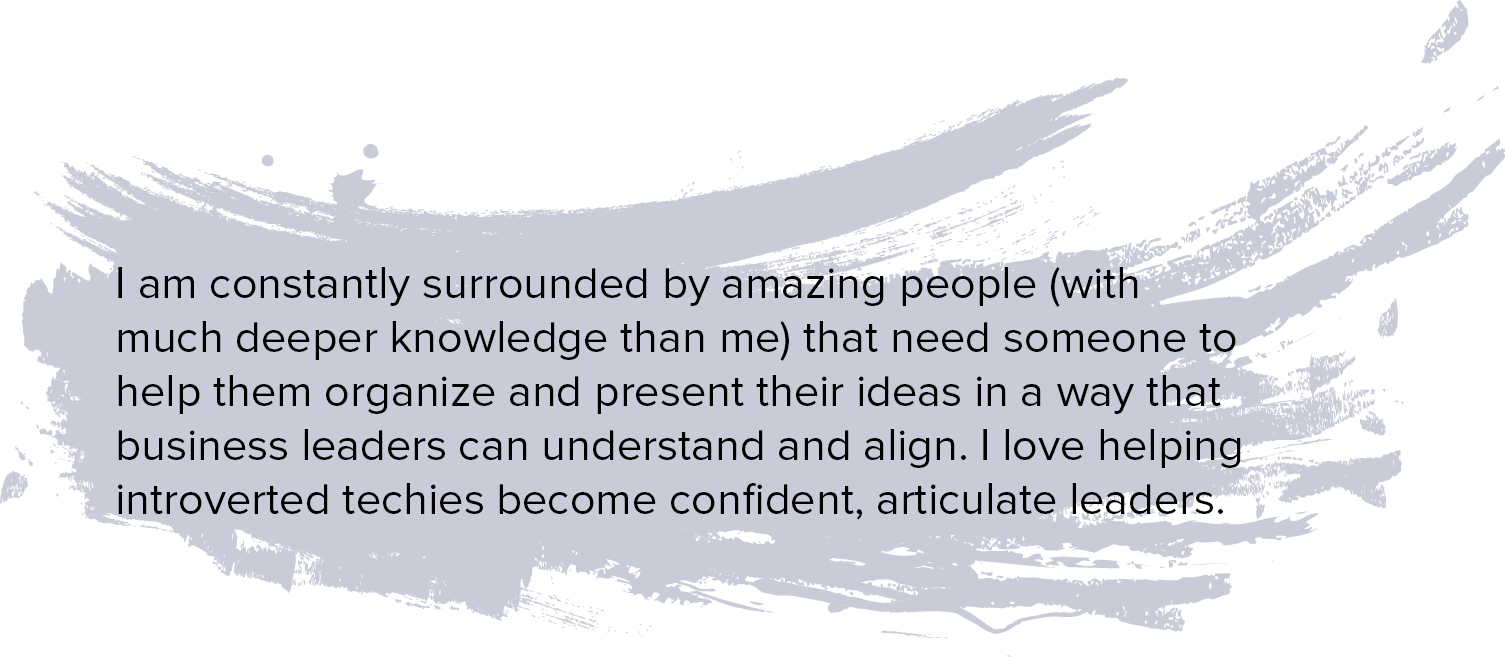
Tell us about a role model or mentor who has helped shape your career.
One of my best mentors was the president of a tiny startup where I was a solution architect. He was the first leader who patiently explained how business models work and how to sell technology to investors. The ability to explain technology to non-technical audiences has been a key to my success.
A meeting gets canceled and you have a surprise 30 minute window of free time — how do you spend it?
If I have a surprise 30 minutes of free time during a work day, I’ll get off the computer and take a break – get coffee, go outside and visit folks in the office. Some of my best creative problem-solving happens when I step away and let my mind relax a bit.
What are the ways you stay grounded and take care of yourself?
I exercise regularly, try to make healthy food choices and do my best to stop non-urgent work at a reasonable time every evening. I also enjoy cooking, gardening and arts and crafts to decompress and express myself creatively.
When you think about your personal legacy as a leader, what do you hope people will remember?
My passion is giving voice to people who have great ideas but feel like they are never heard. I am constantly surrounded by amazing people (with much deeper knowledge than me) that need someone to help them organize and present their ideas in a way that business leaders can understand and align. I love helping introverted techies become confident, articulate leaders.
